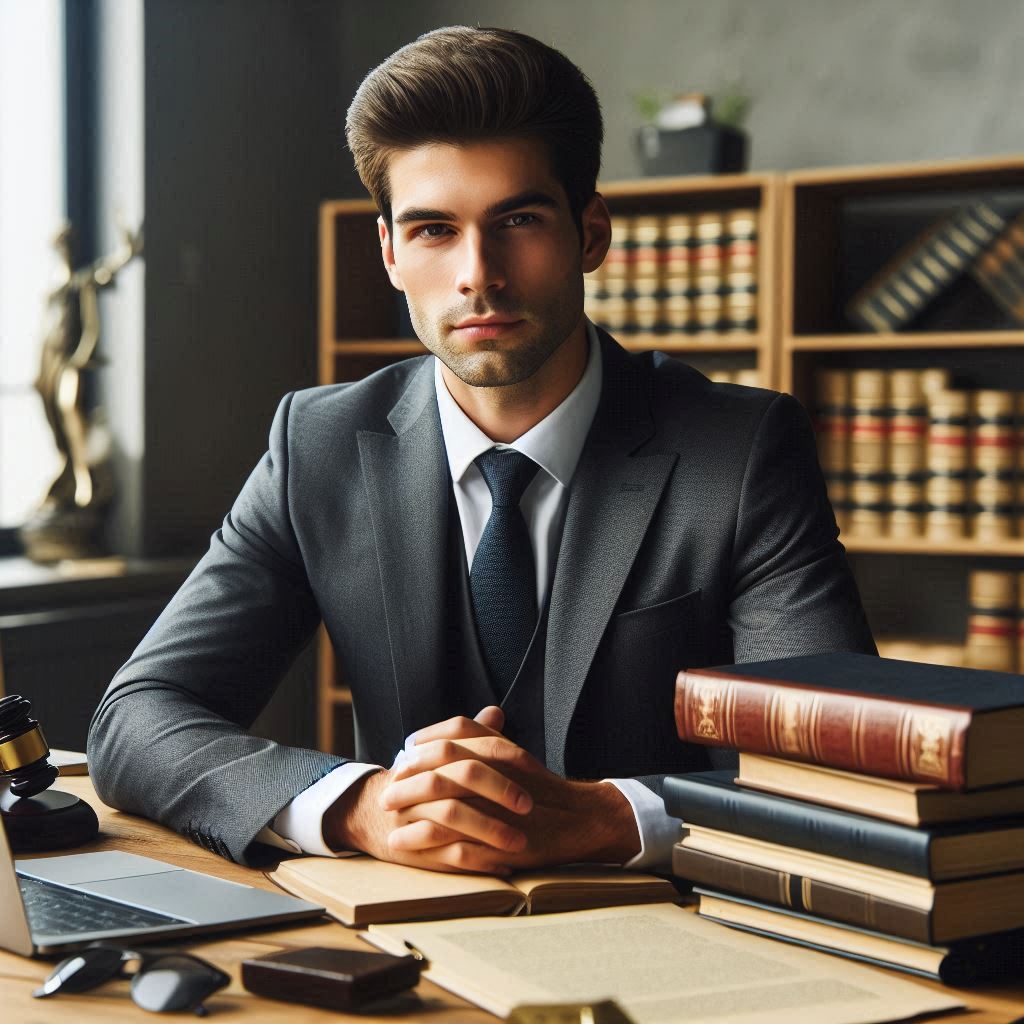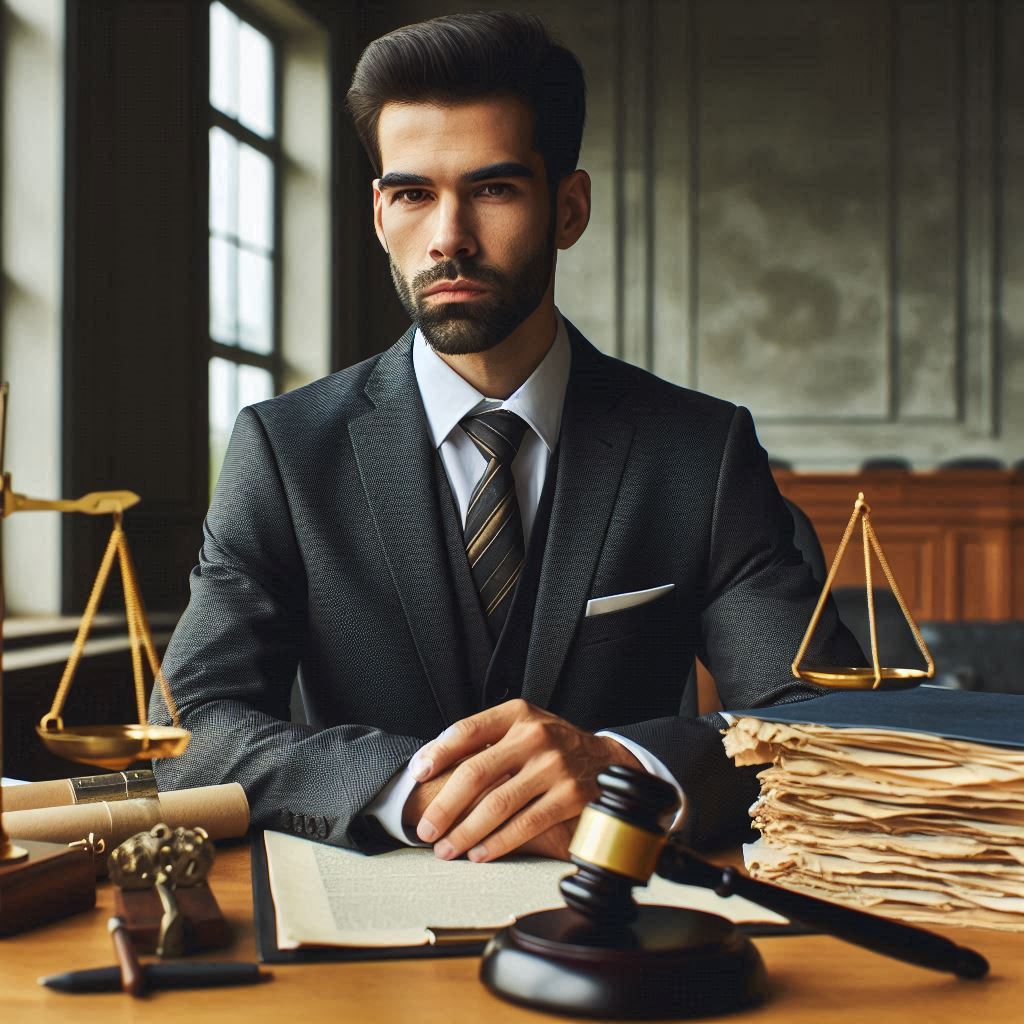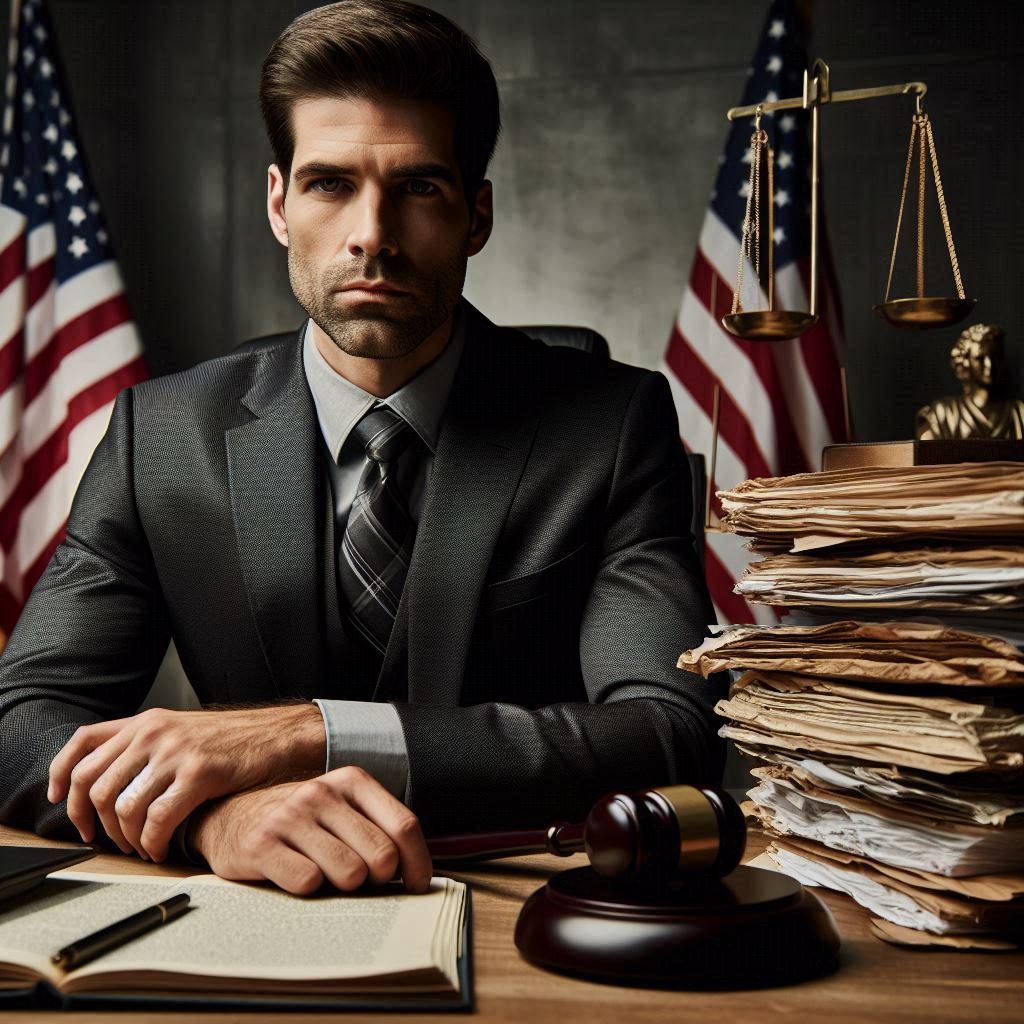Introduction
Prosecutors play a critical role in the criminal justice system.
Their primary duty is to represent the government in prosecuting criminal offenses.
To achieve this, prosecutors must build strong criminal cases.
This process requires meticulous preparation, strategic planning, and a deep understanding of the law.
A robust case ensures that justice is served, and the guilty are held accountable.
It also helps maintain public trust in the legal system.
Brief Overview of the Importance of Strong Criminal Cases
Strong criminal cases are essential for several reasons.
First, they increase the likelihood of securing a conviction.
A well-prepared case leaves little room for doubt, making it difficult for defense attorneys to undermine the evidence.
This, in turn, helps ensure that justice is served and that victims receive the closure they need.
Second, strong cases deter criminal behavior.
When potential offenders see that the legal system effectively prosecutes crimes, they may think twice before engaging in illegal activities.
This deterrence effect helps maintain public order and safety.
Third, robust criminal cases uphold the integrity of the justice system.
They demonstrate that the legal process is thorough, fair, and impartial.
This transparency fosters public trust and confidence in the judicial system.
People need to believe that the courts can and will deliver justice.
Role of Prosecutors in Building These Cases
Prosecutors play a multifaceted role in building strong criminal cases.
Their work begins long before the trial.
From the moment they receive a case, they start gathering and reviewing evidence.
This evidence includes police reports, witness statements, forensic analysis, and any other relevant information.
Prosecutors must ensure that all evidence is admissible in court and can withstand scrutiny.
One of the first steps prosecutors take is to work closely with law enforcement.
They guide officers on collecting and preserving evidence correctly.
This collaboration is crucial, as improperly handled evidence can be dismissed in court.
Prosecutors also decide which charges to file based on the evidence.
This decision-making process requires careful consideration of the law and the facts of the case.
Prosecutors then prepare for pre-trial hearings and motions.
They argue against the defense’s attempts to dismiss charges or suppress evidence.
This stage is critical for establishing the admissibility of key evidence.
Prosecutors must present compelling arguments to convince the judge to allow the evidence.
During the trial, prosecutors present the case to the jury.
They call witnesses, present evidence, and cross-examine the defense’s witnesses.
Their goal is to prove beyond a reasonable doubt that the defendant committed the crime.
This requires clear, persuasive communication and a deep understanding of the law.
Throughout the process, prosecutors must anticipate the defense’s strategies.
They prepare rebuttals and gather additional evidence if needed.
This proactive approach helps strengthen their case and counters the defense’s arguments.
In essence, building a strong criminal case requires diligent effort from prosecutors.
Their work ensures that justice is served and that the legal system remains credible and effective.
By meticulously preparing and presenting cases, prosecutors play a pivotal role in maintaining law and order.
Gathering evidence
When it comes to building a strong criminal case, one of the most crucial aspects is gathering evidence.
Prosecutors collect various types of evidence to support their case, ranging from physical evidence to testimonial evidence.
Types of evidence
Physical evidence includes items such as weapons, fingerprints, and DNA samples.
These pieces of evidence can directly link a suspect to a crime scene or victim, providing concrete proof of their involvement.
Testimonial evidence, on the other hand, involves witness statements or expert testimony.
Witnesses who saw the crime occur or have relevant information can testify in court, strengthening the prosecution’s case.
It’s essential for prosecutors to ensure that the evidence they gather is admissible in court.
This means following proper procedures when collecting and handling evidence to prevent it from being challenged or excluded by the defense.
Admissibility can be affected by factors such as how the evidence was obtained or stored, as well as the chain of custody.
If the evidence is tainted or mishandled, it may not be allowed in court, weakening the prosecutor’s case.
Expert witnesses and forensic evidence
To further bolster their case, prosecutors often rely on expert witnesses and forensic evidence.
Expert witnesses, such as forensic scientists or medical professionals, provide specialized knowledge and analysis of the evidence.
Forensic evidence, such as DNA analysis or ballistics testing, can provide irrefutable proof of a suspect’s guilt.
This scientific evidence is highly persuasive in court and can significantly influence the outcome of the case.
In a nutshell, gathering strong evidence is vital for prosecutors to build a solid criminal case.
By collecting various types of evidence, ensuring its admissibility, and leveraging expert witnesses and forensic evidence, prosecutors can increase their chances of securing a conviction.
Read: How Patent Agents Assist in Protecting Your Inventions
Interviewing Witnesses
Interviewing witnesses is a fundamental step in building a strong criminal case.
Prosecutors must gather as much information as possible from those who witnessed the crime or have relevant knowledge.
The process begins with identifying potential witnesses.
Prosecutors then contact these individuals and arrange interviews.
These interviews can take place at various locations, such as the prosecutor’s office, the witness’s home, or even at the crime scene.
Importance of Witness Testimony in Building a Case
Witness testimony plays a crucial role in the criminal justice system.
It can provide firsthand accounts that are often pivotal to the outcome of a case.
A credible witness can corroborate the evidence, provide new insights, and help establish the facts.
Their statements can influence the jury’s perception and are often decisive in securing a conviction.
Without reliable witness testimony, building a strong case becomes significantly more challenging.
Techniques for Interviewing Witnesses
Prosecutors use several techniques to effectively interview witnesses.
They start by creating a comfortable environment, ensuring the witness feels safe and respected.
Open-ended questions are used to encourage detailed responses.
Prosecutors avoid leading questions to ensure the witness’s account is genuine.
Active listening is essential, as it helps build rapport and allows the prosecutor to identify important details.
Interviews are often recorded to ensure accuracy and provide a record for future reference.
Prosecutors also use techniques to assess the credibility of witnesses.
They look for consistency in the witness’s story and compare it with other evidence.
Body language and non-verbal cues are observed to detect signs of deception or discomfort.
Prosecutors may also verify the witness’s background to rule out any potential biases or motives to lie.
Cross-referencing the witness’s account with other testimonies and evidence helps in validating their statements.
Credibility and Reliability of Witnesses
The credibility and reliability of witnesses are paramount in building a strong case.
A credible witness is someone who appears honest, has no ulterior motives, and whose testimony aligns with the evidence.
Reliability refers to the witness’s ability to provide consistent and accurate information.
Prosecutors must ensure that their witnesses are both credible and reliable, as their testimonies can significantly impact the case’s outcome.
To enhance credibility, prosecutors prepare witnesses for trial.
They educate them on courtroom procedures and emphasize the importance of honesty.
Witnesses are advised to speak clearly, remain calm, and stick to the facts.
Prosecutors also explain the potential consequences of perjury, reinforcing the need for truthful testimony.
By preparing witnesses thoroughly, prosecutors can strengthen their cases and improve their chances of securing convictions.
In review, interviewing witnesses is a critical component of building strong criminal cases.
Prosecutors rely on witness testimony to establish the facts, corroborate evidence, and influence the jury.
Through effective interviewing techniques and ensuring the credibility and reliability of witnesses, prosecutors can construct compelling cases that stand up in court.
Witnesses play an indispensable role in the criminal justice system, and their testimonies can be the key to achieving justice.
Read: Typical Salary Range for Patent Agents in America
Analyzing evidence
When prosecutors build criminal cases, one of the most critical stages of the process is analyzing the evidence.
This step is essential as it helps prosecutors understand the key elements of the case, strengthen their arguments, and ultimately secure a conviction in court.
Identifying Key Elements
In analyzing evidence, prosecutors strive to pinpoint the key elements that will support their case.
The team meticulously reviews witness statements, forensic reports, and physical evidence.
They determine crucial facts to prove the defendant’s guilt beyond a reasonable doubt.
Use of Technology and Software
Advancements in technology have revolutionized the way prosecutors analyze evidence.
Tools such as forensic software, DNA testing, and digital forensics enable prosecutors to delve deeper into the evidence, uncovering intricate details that might have otherwise gone unnoticed.
This technology not only helps in identifying key elements but also in presenting them convincingly in court.
Importance of Thorough Analysis
Thorough analysis plays a pivotal role in building a strong criminal case.
It ensures that prosecutors have a comprehensive understanding of the evidence at hand, allowing them to anticipate potential challenges from the defense and prepare effective counterarguments.
Without a thorough analysis, prosecutors risk overlooking crucial details that could weaken their case in court.
Analyzing evidence is a crucial step in building strong criminal cases.
Prosecutors examine evidence, leverage technology and software, and identify key elements to construct compelling arguments.
These arguments bolster their case and increase the likelihood of a successful court outcome.
Read: Patent Agent Certification: Everything You Need to Know

Building a timeline
How Prosecutors Put Together A Timeline Of Events To Strengthen Their Case
Prosecutors meticulously document events in chronological order to build a strong case. This timeline serves as a roadmap for the jury.
By presenting events in a clear sequence, prosecutors help the jury understand the context and progression of the crime.
A timeline can be a crucial tool in establishing motive and intent. It allows prosecutors to show the defendant’s state of mind.
Transform Your Career Today
Unlock a personalized career strategy that drives real results. Get tailored advice and a roadmap designed just for you.
Start NowHaving a detailed timeline can also help prosecutors identify any gaps or inconsistencies in the defendant’s alibi.
Moreover, a timeline can help prosecutors demonstrate the defendant’s opportunity to commit the crime. This can be key in proving guilt.
Prosecutors rely on witness testimony, surveillance footage, and other evidence to piece together the timeline of events.
The timeline not only helps prosecutors organize their case but also presents a compelling narrative to the jury.
The significance of timelines
Timelines are essential in presenting a logical and coherent account of the crime to the jury.
They provide a visual aid that clarifies complex events and ensures that the facts are presented accurately.
A well-constructed timeline can help prosecutors refute defenses that rely on confusion or misinterpretation of events.
Timelines also establish a clear connection between the defendant’s actions and their consequences, reinforcing the prosecution’s argument.
The timeline helps prosecutors establish a clear timeline of events leading up to and following the crime.
This chronological order is crucial in demonstrating the defendant’s actions and decisions in context.
By highlighting the sequence of events, prosecutors can show how each action contributed to the commission of the crime.
Additionally, a well-structured timeline can illustrate the defendant’s behavior patterns and intentions.
The establishment of motive and intent
One of the primary goals of creating a timeline is to establish the defendant’s motive and intent.
By outlining the sequence of events, prosecutors can demonstrate the defendant’s reasons for committing the crime.
This evidence is vital in proving the defendant’s state of mind at the time of the offense.
A timeline can help prosecutors connect the dots between the defendant’s actions and their underlying motivations.
Ultimately, a well-constructed timeline can be a powerful tool in building a compelling case against the defendant.
Read: What Does a Patent Agent Do? Roles and Responsibilities
Working with law enforcement
Collaborative efforts between prosecutors and law enforcement in building a case
Collaboration between prosecutors and law enforcement is essential for building a strong criminal case.
Prosecutors rely on law enforcement agencies to gather evidence, conduct investigations, and provide crucial information that will be used in court.
Law enforcement officers are responsible for gathering physical evidence, interviewing witnesses, and collecting data that can be used to build a case against a suspect.
Prosecutors work closely with law enforcement to ensure that all necessary evidence is obtained in a lawful and ethical manner.
How prosecutors rely on law enforcement for gathering evidence and conducting investigations
Prosecutors heavily rely on law enforcement agencies to gather evidence and conduct thorough investigations in criminal cases.
Law enforcement officers have the training, expertise, and resources to collect evidence, analyze data, and present findings that will be crucial for building a strong case in court.
Prosecutors work hand in hand with law enforcement to ensure that all evidence is properly documented, stored, and presented in court to secure a conviction.
Transform Your Career Today
Unlock a personalized career strategy that drives real results. Get tailored advice and a roadmap designed just for you.
Start NowImportance Of Maintaining A Strong Working Relationship With Law Enforcement Agencies
Maintaining a strong working relationship with law enforcement agencies is paramount for prosecutors in building successful criminal cases.
Effective communication, trust, and collaboration between prosecutors and law enforcement officers are key factors in ensuring that evidence is gathered and investigations are conducted efficiently.
Prosecutors must work closely with law enforcement to ensure that all legal procedures are followed, evidence is obtained legally, and investigations are conducted in a timely manner.
By fostering a positive and professional relationship with law enforcement, prosecutors can maximize the chances of securing a conviction in criminal cases.
Presenting the Case in Court
Prosecutors meticulously prepare before presenting their case in court.
They gather all necessary evidence, ensuring it is admissible.
They also create a compelling narrative to present to the jury.
This narrative must clearly outline the events and establish the defendant’s guilt beyond a reasonable doubt.
Prosecutors organize their evidence logically, ensuring each piece supports their argument.
During the trial, prosecutors call witnesses to testify.
They present physical evidence, such as documents or objects, that link the defendant to the crime.
Visual aids, like photographs or videos, often help clarify complex points.
Throughout the trial, prosecutors must remain adaptable, ready to counter any unexpected defense strategies.
Strategies for Effective Case Presentation
Prosecutors use several strategies to present their case effectively.
One key strategy is storytelling.
By framing the case as a story, they make it easier for the jury to follow.
The story must be coherent and emotionally engaging, helping the jury connect with the victim and understand the gravity of the crime.
Another crucial strategy is highlighting the strongest evidence first.
This approach captures the jury’s attention early on.
By presenting their most compelling evidence initially, prosecutors establish a strong foundation for their case.
This tactic also sets a positive tone, making subsequent evidence seem more credible.
Cross-examining defense witnesses is another critical strategy.
Prosecutors prepare meticulously for cross-examinations, anticipating potential weaknesses in the defense’s case.
They ask pointed questions designed to expose inconsistencies or falsehoods in the defense’s narrative.
Effective cross-examinations can significantly weaken the defense’s position and reinforce the prosecution’s case.
Importance of Witness Preparation and Courtroom Demeanor
Witness preparation is vital for prosecutors.
They spend significant time coaching witnesses on how to testify effectively.
Witnesses must remain calm, articulate, and consistent under pressure.
Prosecutors help them understand the importance of honesty and clarity.
They also practice potential cross-examination questions with witnesses, preparing them for the defense’s tactics.
Courtroom demeanor is equally important.
Prosecutors must present themselves as confident and trustworthy.
Their body language, tone of voice, and facial expressions can influence the jury’s perception.
Prosecutors need to exude professionalism and credibility at all times.
This demeanor helps build trust with the jury, making them more likely to believe the prosecution’s case.
Role of Closing Arguments in Persuading the Jury
Closing arguments are the prosecutor’s final opportunity to persuade the jury.
They summarize the evidence presented during the trial, highlighting key points that support their case.
Prosecutors aim to leave a lasting impression on the jury, reinforcing the defendant’s guilt.
During closing arguments, prosecutors reiterate the most compelling aspects of their case.
They remind the jury of critical witness testimonies and physical evidence.
They also address any weaknesses in the defense’s case, pointing out inconsistencies or gaps in their narrative.
Prosecutors use persuasive language and rhetorical techniques to make their arguments compelling.
They appeal to the jury’s sense of justice, urging them to deliver a guilty verdict.
Effective closing arguments can significantly influence the jury’s decision, making them a crucial part of the prosecution’s strategy.
In fact, prosecutors build strong cases by effectively presenting evidence, preparing witnesses, maintaining courtroom demeanor, and delivering persuasive closing arguments.
These strategies are essential for convincing the jury of the defendant’s guilt.
Conclusion
Building strong criminal cases requires meticulous work by prosecutors.
They ensure justice prevails and public safety is maintained.
Their efforts span several key areas, all of which demand thoroughness, precision, and dedication.
Prosecutors start by collaborating with law enforcement to gather evidence.
They analyze crime scenes, interview witnesses, and collect forensic data.
This foundational step is crucial in establishing the facts.
The accuracy of this evidence impacts the entire case.
Once collected, evidence undergoes thorough scrutiny.
Prosecutors examine physical evidence, review police reports, and scrutinize surveillance footage.
They also conduct background checks on suspects.
This process helps them understand the crime’s context and the involved parties’ motives and actions.
Expert witnesses provide critical insights in many cases.
Prosecutors consult with forensic scientists, medical examiners, and other specialists.
These experts help clarify complex evidence and present it in understandable terms during trials.
Their testimony can be pivotal in swaying a jury’s decision.
Witnesses play a crucial role in criminal trials.
Prosecutors prepare them for court appearances, ensuring their testimony is clear and concise.
They conduct mock examinations to build witnesses’ confidence and anticipate potential cross-examination questions.
This preparation is essential for credible and persuasive testimony.
Crafting a Persuasive Narrative
Prosecutors must craft a compelling narrative that convincingly presents the evidence.
They organize the facts logically and create a storyline that jurors can follow easily.
This narrative should clearly outline the defendant’s guilt beyond a reasonable doubt.
In court, prosecutors present evidence and question witnesses.
They make opening and closing statements that highlight key points.
Effective communication skills are essential here.
Prosecutors must articulate their case clearly and persuasively to convince the jury of the defendant’s guilt.
Prosecutors play a vital role in the criminal justice system.
Their work involves complex tasks that require meticulous attention to detail.
They gather and analyze evidence, collaborate with experts, prepare witnesses, and craft persuasive narratives.
Prosecutors investigate crime scenes and gather crucial evidence.
They work closely with law enforcement and expert witnesses.
They prepare witnesses for court and present compelling narratives during trials.
Each step is critical in building a strong criminal case.
Importance of Prosecutors
Prosecutors ensure justice is served and public safety is maintained.
They hold offenders accountable and seek justice for victims.
Their work requires a deep understanding of the law and a commitment to ethical standards.
Building a successful criminal case is a complex process.
It demands dedication, precision, and perseverance.
Prosecutors must be thorough in their investigations and persuasive in their arguments.
Their work is essential in maintaining the integrity of the criminal justice system.
Understanding the complexity of a prosecutor’s job fosters greater appreciation for their efforts.
Their dedication ensures that justice prevails and society remains safe.
Next time you read about a criminal trial, remember the immense work behind the scenes by the prosecutors who build strong cases.




